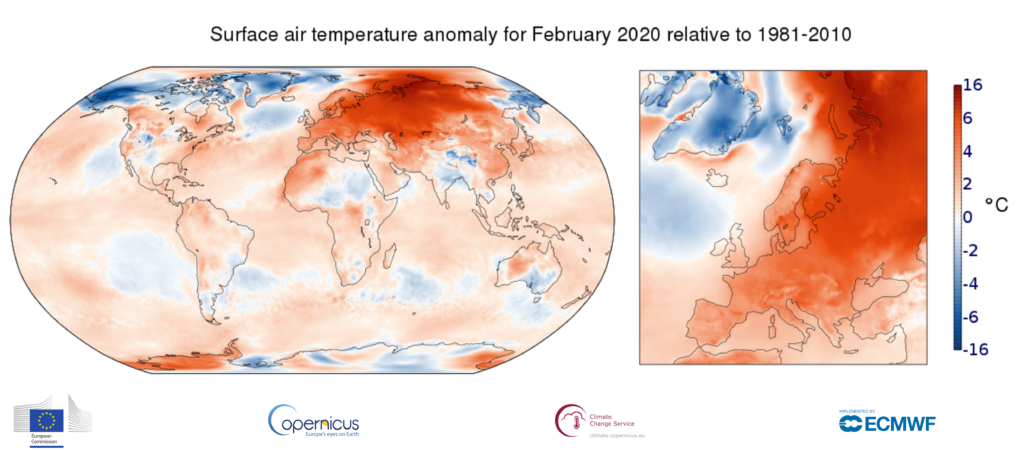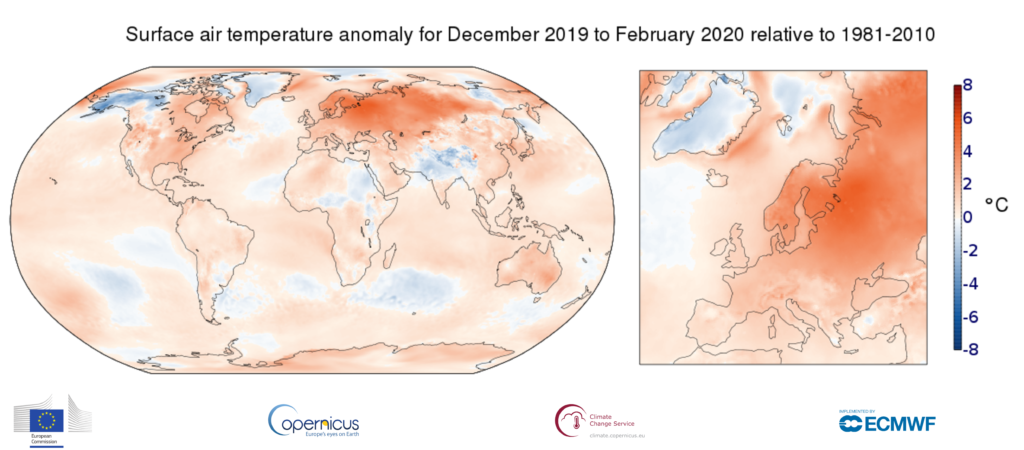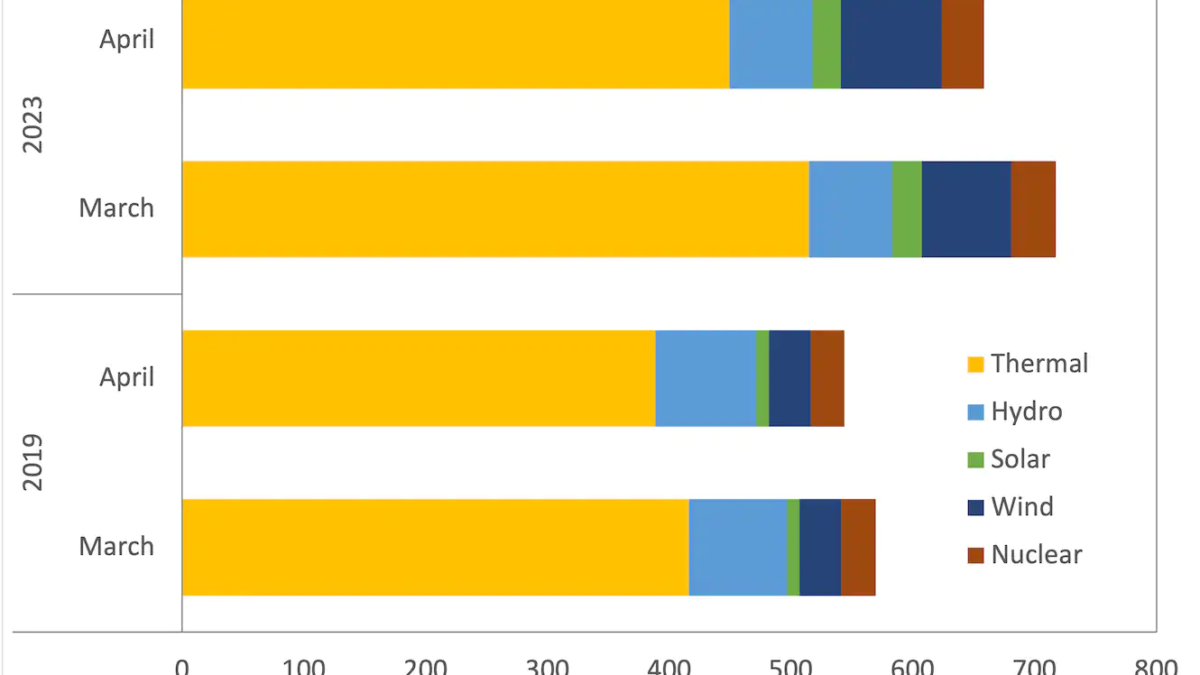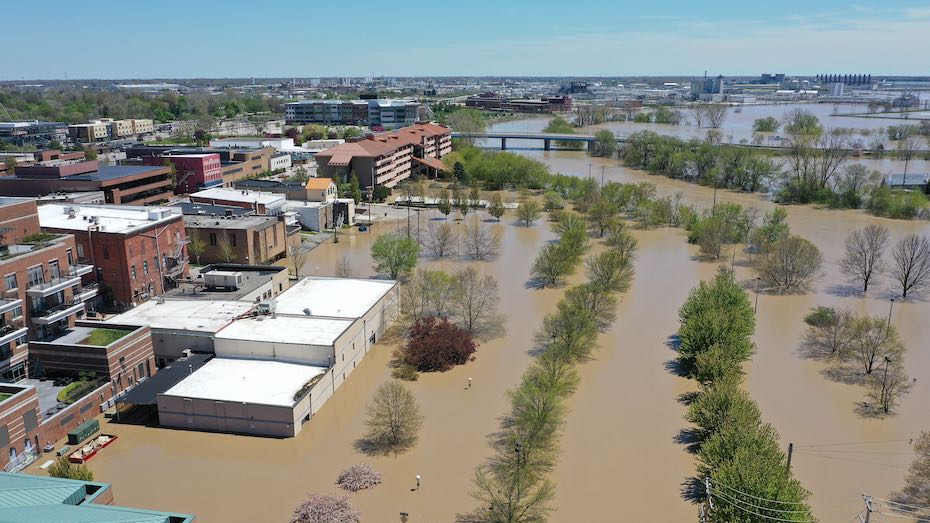The boreal winter season 19/20 was by far the warmest winter season ever recorded in Europe – “Europe has been experiencing its mildest winter on record”

4 March 2020 (C3S) – With persistent mild weather over Europe, particularly in the north and east, the past winter was 3.4 °C warmer than the average winter for the period 1981-2010. The temperature was almost 1.4°C higher than that of the previous warmest winter, 2015/16. Back in November C3S seasonal predictions provided strong indications that this could be a warm winter for Europe.
“Europe has been experiencing its mildest winter on record. Whilst this was a truly extreme event in its own right, it is likely that these sorts of events have been made more extreme by the global warming trend”, says Carlo Buontempo, Director of the Copernicus Climate Change Service (C3S). “Seeing such a warm winter is disconcerting, but does not represent a climate trend as such. Seasonal temperatures, especially outside the tropics vary significantly from year to year. Part of our work is to compare climate data dating back to the pre-industrial era to ascertain long-term climate trends. With C3S data, individuals, institutions and policy makers can make informed decisions based on the evolving climate temperatures.”
“Now more than ever, the role of Copernicus is becoming more important. The European Commission relies on programmes like Copernicus and institutions like the ECMWF to provide quality assured operational data to support the development of a climate-resilient society. Copernicus will effectively contribute to the implementation of the European Commission Green Deal in various sectors”, adds Mauro Facchini, Head of the Earth Observation Unit at European Commission Directorate-General’s DEFIS.

The Copernicus Climate Change Service (C3S), implemented by the European Centre for Medium-Range Weather Forecasts on behalf of the European Commission, routinely publishes monthly climate bulletins reporting on the changes observed in global surface air temperature, sea ice cover and hydrological variables. All the reported findings are based on computer-generated analyses using billions of measurements from satellites, ships, aircraft and weather stations around the world.
February 2020 surface air temperature:
- Last month was the second warmest February on record, both globally and for Europe, cooler by a little under 0.1°C than February 2016, the warmest February;
- In Europe, February was 3.9°C warmer than the average February in the period 1981-2010 (0.8°C globally);
- Temperatures were most above average over a large region covering much of Europe, Siberia, and Central Asia, and over West Antarctica;
- Temperatures were most below average over northern Alaska;
The map and quoted data values are from ECMWF Copernicus Climate Change Service’s ERA5 dataset. Area averages for temperature over the European region are for land only with the following longitude/latitude bounds: 25W-40E, 34N-72N.
More information about climate variables in February and climate updates of previous months as well as high-resolution graphics can be downloaded here: https://climate.copernicus.eu/climate-bulletins.
More information about the C3S data set and how it is compiled can be found here: https://climate.copernicus.eu/climate-bulletin-about-data-and-analysis.
Contact
- Nuria Lopez, Communications Account Officer, European Centre for Medium-Range Weather Forecasts, Shinfield Park, Reading, RG2 9AX, UK, Email: copernicus-press@ecmwf.int, Phone: +44 (0)118 949 9778, Mobile: +44 (0)7392 277 523, Twitter: @CopernicusECMWF
The boreal winter season 19/20 was by far the warmest winter season ever recorded in Europe


